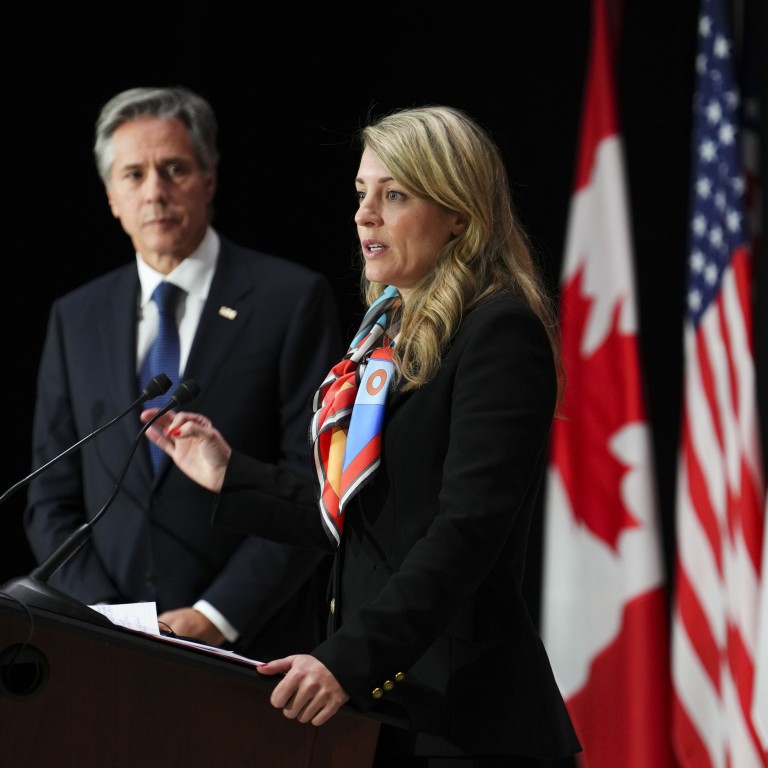
Canada to join US-led Indo-Pacific Economic Framework, vows to play ‘bigger role’ in region
- Seeking way forward from fraught relations with Beijing, Ottawa joins 13-nation alliance viewed as centrepiece of American strategy
- Top American envoy praises announcement, saying US will ‘closely consult’ IPEF nations on process for considering new members
“I’m pleased to announce that Canada will seek membership to the Indo-Pacific Economic Framework, which is commonly known as IPEF,” Joly said, adding that the two countries on Thursday “also agreed to hold the first Canada-US strategic dialogue on the Indo-Pacific to further align our approaches”.
Blinken praised Canada’s announcement. He said in the coming months the US would “closely consult with other members on the development of a process for considering new members”.
After the US exit, the remaining countries formed the Comprehensive and Progressive Trans-Pacific Partnership, a multilateral trade deal. Canada is a member of TPP, and China has asked to join the group.
Goldy Hyder, president and CEO of the Business Council of Canada, welcomed Ottawa’s announcement, saying that “joining IPEF will enhance Canada’s credibility in the region and strengthen our economic ties with the US”.
US-led Indo-Pacific Economic Framework touts ‘success’, but few details given
A US-Canada conversation about the Indo-Pacific was “clearly overdue”, according to Christopher Sand, director of the Canada Institute at the Washington-based Woodrow Wilson International Centre for Scholars.
“The United States should appreciate that its aspirations for economic relations in the Indo-Pacific will benefit when the leading US trading partner, Canada, has taken its place at the Indo-Pacific table”, Sand said.
Despite resolution of Meng, ‘two Michaels’ crises, Canada-China chill lingers
Ottawa “is collectively scratching its head, trying to figure out what would be a reasonable way forward”, said former Canadian ambassador Randolph Mank in July. He believed the government had been in policy paralysis over China and the Indo-Pacific for “several years”.
Mank described the development on Thursday as “a positive step that should boost the credibility of our long-awaited Indo-Pacific Strategy, expected next month”.
“There is much more we can do to expand commercial ties with Asia, but we have to get our own house in order, too, if we are to take advantage of trade agreements,” he said.
Amid the continuing US push for its allies to exclude China from critical supply chains, Blinken will visit a lithium-recycling facility in Montreal on Friday.
“From critical minerals to microchips, we need to be able to source and to make essential products closer to home,” said Blinken. “That will only make us more reliable and delivering for our people, but also more competitive in the 21st-century economy.”

